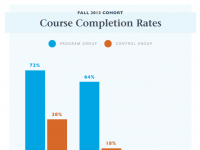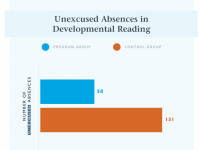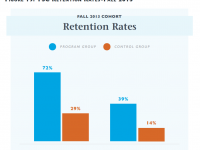Not Just Faster: Equity and Learning Centered Developmental Education Strategies
2016 – The Southern Education Foundation (SEF) has engaged five Minority-Serving Institutions (MSIs) to test the efficacy of developmental education (DE) interventions. These institutions are uniquely poised to address pursuing more equitable achievement goals in the post-secondary space. This report targets the persistent problem that DE poses for many, as both an impediment to degree attainment as well as an issue that disproportionately impacts students from low-income families and students of color. This project sought to improve developmental education outcomes through exploring more effective methods to measure impact, diminish costs, and save time in efforts to reduce barriers to college completion.
The current push in higher education to make college-level, credit-bearing courses more accessible to all students, but especially students of color and low-income college students, is the single most significant action being taken to dismantle structural inequality in higher education.
Participating Campuses:
California State University San Bernadino
Claflin University
Morgan State University
Texas Southmost College
University of the Incarnate Word
DE Interventions Highlighted:
Summer Bridge Programs
Co-requisite Courses
Interdisciplinary Curriculum
Extended Courses
Accelerated Math
Unique Angle:
This report represents the culminating work of a 5-year long mission the MSI Consortium for Innovation & Change embarked upon to support innovative approaches to DE and to ensure that defensible evidence about the effectiveness of these innovations was produced.
The participating campuses included Historically Black Colleges and Universities (HBCUs) and Hispanic Serving Institutions (HSIs) creating a window into a space that is often understudied but is home to a significant number of the target population that faces the barriers that DE presents in higher education.
Key Findings:
- DE program interventions should fit the multiplicity of needs within a single campus’ student body.
- Promoting intercampus collaboration is critical.
- Great importance lies in understanding which DE interventions are most effective & how they work.
- DE reform should include an emphasis on teaching and learning.
- DE reform efforts must center on equity issues.
- Students labeled as “underprepared” can be successful in college level, credit-bearing courses through alternative pathways beyond the traditional DE courses. (See figures below.)



